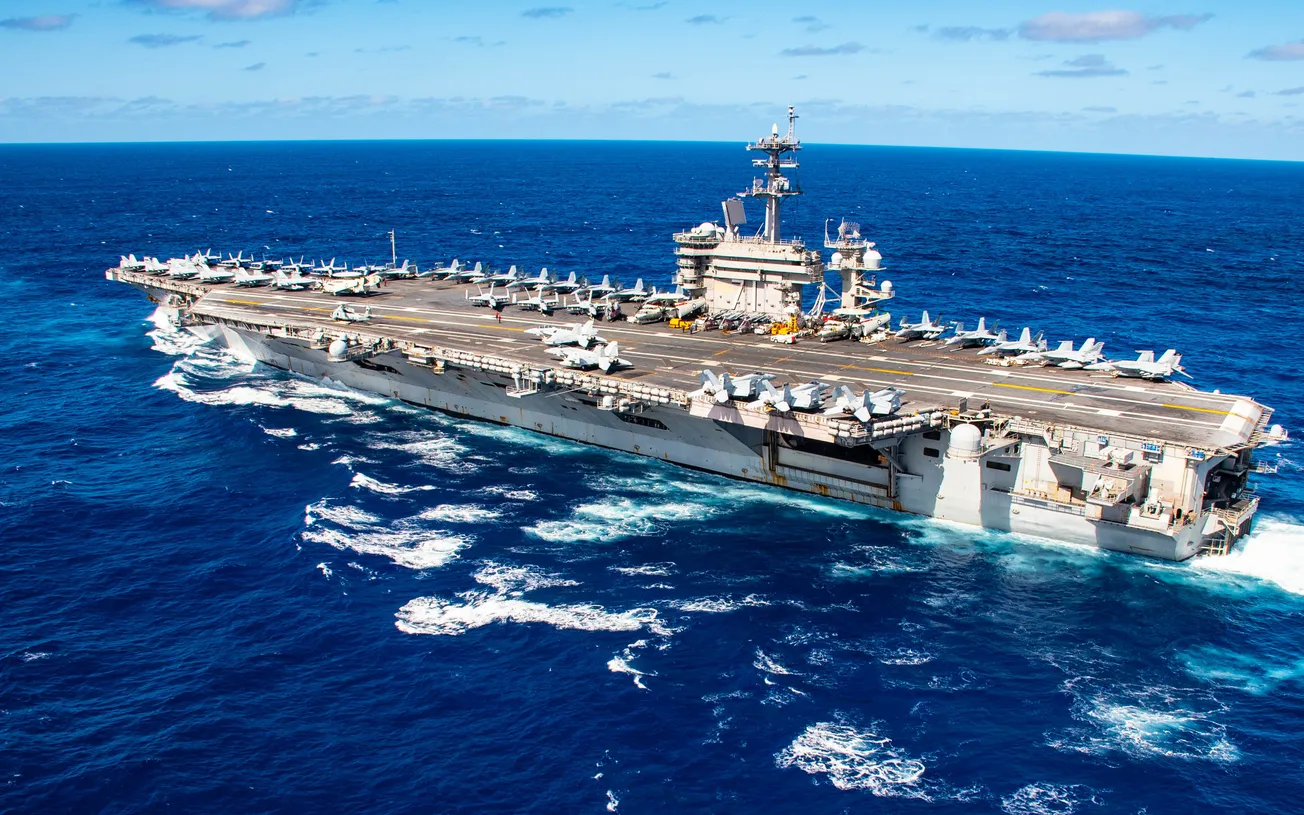The Pentagon announced yesterday that the U.S. will be maintaining two aircraft carriers on Southwest Asian waters for an unspecified period of time. The USS Abraham Lincoln and the USS Theodore Roosevelt are in the Gulf of Oman. The announcement came in a phone call between U.S. Secretary of Defense Lloyd Austin and Israeli Defense Minister Yoav Gallant. “The Secretary reiterated Israel’s right to defend itself and the United States’ ironclad resolve to support Israel’s defense against threats from Iran and its regional partners and proxies,” the readout said. “As part of that support, the Secretary has ordered the presence of two Carrier Strike Groups to remain in the region.”
Meanwhile, Chairman of the U.S. Joint Chiefs of Staff Gen. Charles Q. Bown landed in Israel last night, where he met Israel Defense Forces Chief of Staff Lt. Gen. Herzi Halevi this morning; neither side appears to have produced readouts. The “commanders will discuss security and strategic issues regarding joint preparations in the region, as part of the response to threats in the Middle East,” the IDF said yesterday about the meeting, reported Times of Israel. “The IDF will continue to deepen its relationship with the U.S. Armed Forces out of a commitment to strengthening regional stability and the coordination between the two militaries.”
Brown then flew on to Cairo where he had meetings with Egyptian President Abdel Fattah el-Sisi, Minister of Defense Gen. Abd-al-Majid Ahmad Saqr and Armed Forces Chief of Staff Lt. Gen. Ahmad Khalifa. “The engagements included discussions on regional security issues to include on-going tensions in the Middle East and ways to deter the conflict from broadening,” according to the U.S. readout.
The Times of Israel cited Channel 12 TV reporting that Israel gave the Americans “considerable” advance notice of its pre-dawn preemptive strike on Hezbollah’s rocket and missile launchers. It said the U.S. Administration gave its backing to the attack, but warned both before and afterward that Israel should be careful to avoid escalating the conflict toward all-out war. The TV report said the message from the U.S. was conveyed in several interactions with Israel and broadly stated: “We support the operation to avert the specific threat, but be careful in your actions; don’t do anything that is likely to lead to a regional war.”
However, the U.S. has denied direct involvement in Israel’s preemptive strikes on Hezbollah. “The U.S. was not involved in Israel’s preemptive strikes last night. We did provide some ISR (intelligence, surveillance and reconnaissance) support in terms of tracking incoming Lebanese Hezbollah attacks, but did not conduct any kinetic operations as they were not required,” a Biden Administration official said yesterday in a statement that appeared in many media reports. “We continue to closely monitor the situation and remain well-postured and ready to support the defense of Israel from attacks by Iran and any of its proxies,” the official added.



